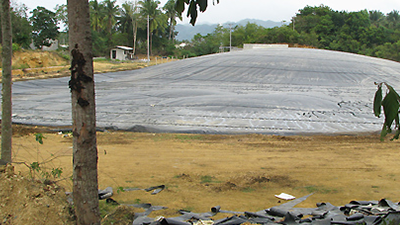For years, the wastewater from Marcela Farms' 40,000 pigs drained into an open air lagoon, raising a smell and a pollution problem on the island of Bohol, a popular tourist destination in the Philippines. It also contributed to a larger, global problem: its waste stream of manure produced methane, a potent greenhouse gas that escaped into the air contributing to climate change.
Today, the farm is earning carbon credits and producing both power and sludge for fertilizer by separating the methane and the solid waste as part of the first animal-waste biogas Programme of Activities in South-East Asia to be certified by the United Nations Framework Convention on Climate Change (UNFCCC).
The difference is in how the farm collects its animal waste. A new waste collection system developed with the assistance of the Land Bank of the Philippines and the U.S. Environmental Protection Agency's Global Methane Initiative Partnership now directs the farm's wastewater into a modern, covered anaerobic lagoon that separates the methane from the sludge.
The captured methane can be converted into electricity and used to power farm operations. The excess is flared, which still releases carbon dioxide but avoids releasing methane, a gas that is about 20 times more effective than CO2 at trapping heat in the atmosphere. Marcela Farms also plans to use the treated sludge as fertilizer for its nearby banana plantation.

